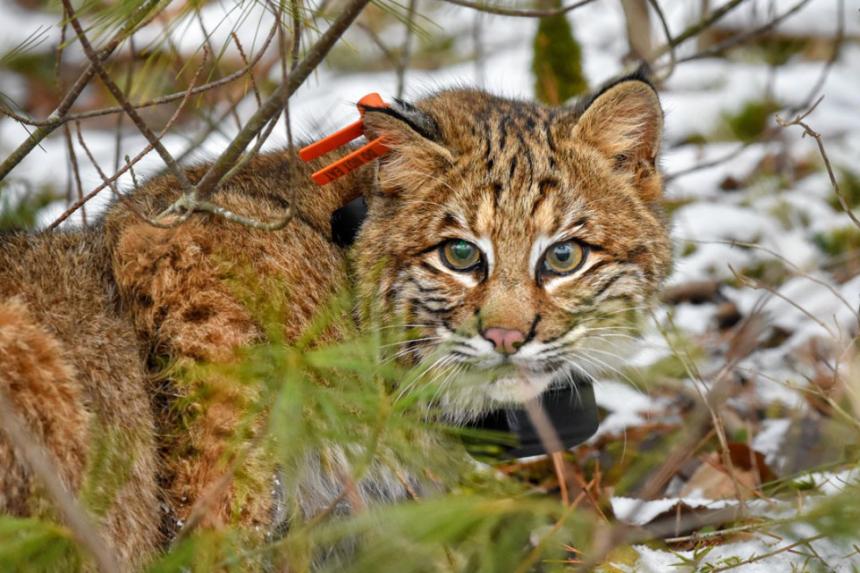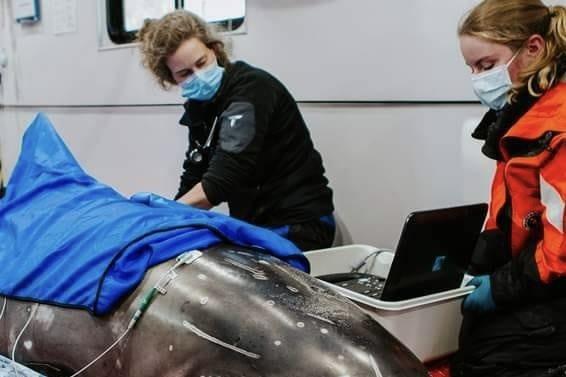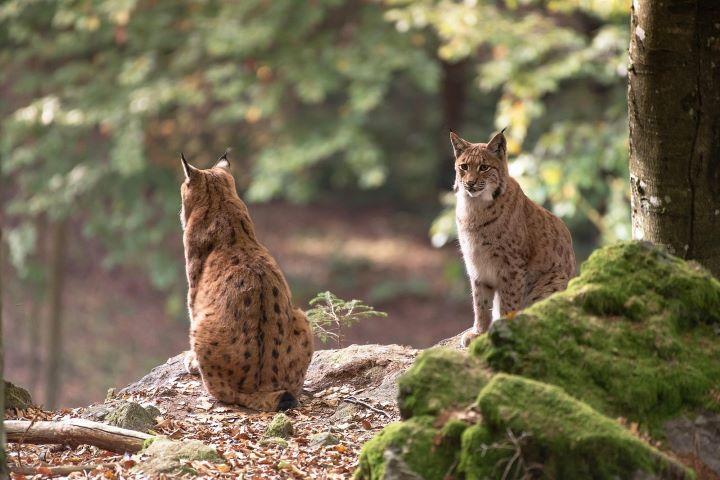In the News

April 21, 2025
A new paper in the journal CABI One Health captures a pioneering One Health effort that reinforces the reality that meaningful policy change across sectors often takes significant time and patience.

April 17, 2025
Avian influenza – which has devastated poultry flocks, wildlife populations and increasingly poses a public health risk – has now been confirmed in wild bobcats in New York state, according to a new study by Cornell scientists.
April 15, 2025
Cornell’s Dr. Raina Plowright and colleagues weigh in on a proposed World Health Organization Pandemic Agreement, stressing the need for adaptable, united action to prevent future pandemics.

April 10, 2025
Moving endangered rhinos to new areas is a vital part of their conservation. War-torn helicopters from the Vietnam War are airlifting the creatures upside down to safety based on research pioneered by Cornell researchers.

April 09, 2025
The Fossil Rim Wildlife Center plays an important role in efforts to save wildlife species from extinction. I was fortunate enough to travel to Glen Rose, Texas for a preceptorship to experience these conservation efforts firsthand....

News
April 03, 2025
Cornell alumna Kate Mueller, DVM '15, has been enamored with marine mammals for as long as she can remember, and her career path shows that there is no one route to a career in wildlife medicine.

March 28, 2025
by
Rodman Getchell
I joined my colleagues at the Cornell University College of Veterinary Medicine (CVM), Dr. Kathryn Fiorella, and her PhD student, veterinarian Eric Teplitz, who have been working to examine interactions among environmental change, livelihoods, food systems, and nutritional security....

For Your Information
March 26, 2025
A recent study by Cornell researchers assessed the presence of antibodies for highly pathogenic H5N1 influenza A in live-captured bobcats in New York.

For Your Information
March 25, 2025
Cornell researchers recently published a study providing the first genetic evidence of canine coronavirus infection in a felid. These findings suggest that felids may play a central role in the emergence of recombinant alphacoronavirus.

March 24, 2025
Drs. Craig Stephen and Marcela Uhart will headline the inaugural Cornell K. Lisa Yang Center for Wildlife Health Distinguished Speaker event on March 28 at Cornell’s College of Veterinary Medicine. They will discuss critical One Health and conservation challenges, highlighting the connections between human, animal, and ecosystem health.
